Progressing the US Olympic Program
Published on February 1st, 2017
Following the 2012 Olympic Games, 2-time U.S. Olympic medalist Charlie McKee was brought into the US Sailing Team to help prepare the sailors for the 2016 Olympic Games, and to reshape the program for future quads. Charlie remains committed to the program for Tokyo 2020 and sits down with Scuttlebutt editor Craig Leweck for an update.
How has the program evolved in four years?
In general terms, what we hoped to be building toward the future, we feel today to be on track with that initiative. With program changes occurring at the start of this quad will only enhance that.
The program seems committed to connecting with the young, up and coming sailors.
Looking back four years ago, our focus was to create a sustainable program that could continuously perform at a high level. A big part of that plan was to work with the younger sailors so that they were more prepared to compete in Olympic racing. Now this plan is out of the theoretical stage. It is happening and it is working, so we are super excited about that.
Talk about what is occurring behind the scenes regarding recruitment.
We’ve always known there is a tremendous about of talent within the USA, but the percentage that are able to, or choose to, do an Olympic campaign is fairly low.
What we do with regard to recruitment is something that we don’t discuss much, we keep this very low key, but we are active and are having success. A big part of recruitment is in making the quality of the team experience high and making sure they understand that we believe in them and do the best to support them.
As this team expands and improves to the next level, we have to make sure that all the elements of the program rise too.
What’s it take to create an experience for the athletes to remain in the program, and ideally, win an Olympic medal?
First and foremost, we want to create a program for which people are drawn to, that is bigger than each individual sailor. For the sailors who were fortunate enough to go to the Rio 2016 Olympics, they were part of this amazing experience of being part of Team USA.
We brought a very young team to the Rio Olympics, and in a lot of cases they weren’t at an experience level to be contending for a medal. But it was a perfect set-up for them to continue on, and we strived to make sure they gathered the most out of that experience so they were in the best position possible to go forward.
Let’s talk about the school years where high school and college competition has historically been the focus of the top sailors.
Every situation is different, and we have definitely exhibited a high degree of flexibility to help make each individual program work. But there are also certain things that are the reality.
What you can’t do is go all the way through college and end up with no technical skills or no background in high performance or Olympic sailing and think that you can, from that point, start an Olympic campaign and have a chance at winning an Olympic medal. That doesn’t match the current landscape of Olympic sailing.
The school-age sailor either must have already gained experience and skills going into these years, or do a better job of balancing school and Olympic sailing. What can’t happen is for highly accomplished sailors at the school level to be starting their Olympic campaigns from ground zero.
There has been a lot of work with the team and the college coaches on this situation to help support what is best for the sailors. This is a balancing act, but in this area we have made great strides. We are really excited about this progress.
What I am hearing is that, for the USA to succeed at the Olympic level, the commitment by each sailors must begin earlier. Does this also help make that decision to go forward for a second quad easier?
Absolutely. This is all about gaining as much knowledge and understanding and experience as early as possible. That’s where the team environment, with the sailors and coaches working together, is so beneficial. This sends the sailors on a much steeper learning curve even if they are not on a full-time basis in the early stages.
Let’s talk about the Rio 2016 Olympic debrief.
As a program, we have to find ways to support the athletes as well as we possibly can, allowing them to just focus on the sailing part. We need to make the campaigning part as easy as possible. We feel good about the coaching side of the support, but we can always do a better job.
There’s definitely lessons to be learned across the spectrum, whether it be campaigning, coaching, funding the athletes and program support. Rio was a difficult place, both to operate and to race, but we made a good start in how this team should operate but we need to take it to the next level.
How did the Team deal with all the distractions?
I think we did quite well in that regard. We had a plan knowing what it was going to be like, with regard to water quality issues, with regard to the hectic environment, and recognizing that the Olympics is unlike any other regatta an athlete competes in. You can’t pretend the Olympics is just another event. It’s not. There are unique distractions. But we had enough veteran experience surrounding the team to get people prepared and insure they are comfortable in an uncomfortable environment. So I saw this as going quite well.
The program is reaching down to younger sailors, but is there also an initiative to work with the youth coaches that are assisting these sailors?
Absolutely. This is a crucial initiative that we are working on. We recently hosted a coach’s roundtable that included our coaches but also coaches from the college ranks and regional coaches and youth coaches to share knowledge.
The US Team can’t have enough exposure with all these young sailors and so this coaching community are the ones that have the interaction and are doing the work. We are looking to raise the bar for coaching throughout the USA. Paradoxically, the mission isn’t necessarily to provide more support and coaching for the sailors, as we want the sailors to learn to race more independently.
What about harnessing knowledge to share with incoming campaigners?
This is another initiative we are pursuing. There are the technical aspects to accumulate but equally important are the psychological aspects of our operation as a team. We want to empower our veterans to mentor the incoming sailors, and we want to foster this desire by our elite members to help the team be strong in future quads.
NOTE: This conversation took place on January 23 and was published on February 1. On February 2, the US Sailing Team revealed they had restructured their leadership team.


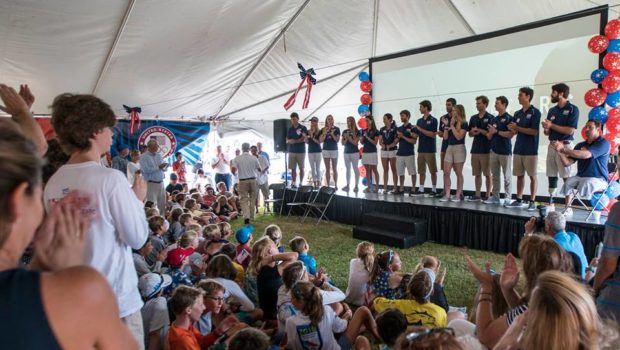
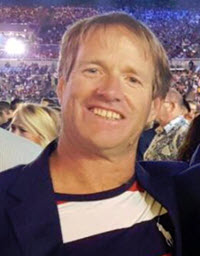


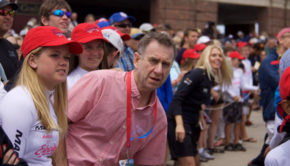

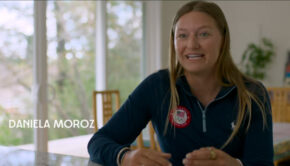
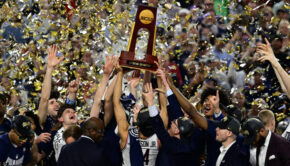
 We’ll keep your information safe.
We’ll keep your information safe.